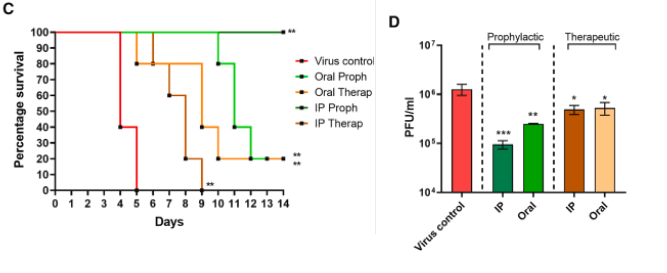Random notes from the other form during the covid times:
Peat on cvd supps:
Q: What would be your go-to medicines/food etc, if you started to develop "Covid" like symptoms like shortness of breath and fever?
RP: Aspirin, antihistamines, and antibiotics (azithromycin has been tested in covid), vitamin D, milk, orange juice,nebulized 4% saline, lidocaine (nebulized or oral), progesterone.
Famotidine
Steady state famotidine concentrations sufficient to elicit H2 antagonism (and inverse agonism) are readily achieved using inexpensive oral tablets and safe dosage levels. As summarized above, the famotidine dosage employed in the retrospective hospital studies currently available which examine famotidine effects on COVID-19 outcomes appears to be levels (20–40 mg daily) which are unlikely to fully inhibit histamine-mediated systemic effects at the H2 receptor (
https://www.frontiersin.org/journals/pharmacology/articles/10.3389/fphar.2021.633680/full
think this would be a better protocol :
Aspirin >500mg
High doses of Vitamins A,D,E,K2
policosanol or other long chain saturated fatty acids
An anti-biotic, preferably one of the tetracyclines or azithromycin
An anti-serotonin chemical like famotidine or cyproheptadine
a steroid like progesterone, pregnenolone, testosterone,...
Addiotinal options :
methylene blue
nigella sativa
emodin / cascara
ivermectin
glycine
zinc
https://lowtoxinforum.com/members/mauritio.7916/
Mauritio:
In this study, they looked at the difference between treating people less or more than 3 days after COVID-19 symptoms started.
They treated the people with a combination of
Aspirin 100mg
indomethacin 75-100mg
omeprazole 20mg
A combination of flavonoids: hesperidin, quercetin and vitamin C
If patients still got worse, they gave them azithromycin, bethametasone and/or heparin.
The duration of the sicknes was reduced and most importantly there were zero percent hospitalizations in the early treatment group, compared with 19% in the other group.
That basically means you could treat covid at home with mostly over the counter medications, but it's important to start treatment early.
I would make some small improvements to the protocol.
I'd favor a higher aspirin dose, meaning >500mg ,maybe even in the grams, it has less effect on blood thinning, but acts more as a metabolical aid and anti-viral. (Aspirin Is Antiviral)
If you take higher doses of aspirin, it's smart to supplement vitamin K2 ,which has good binding affinity for the spike protein, so works in your favor as well ( Vitamin K, D and A bind to the SARS‐CoV‐2 spike protein )
I'd also remove omeprazole and replace it with famotidine. There has been evidence for it having an anti-covid effect ,hence why Dr. Robert Malone treated himself with it when he had an early case of covid. Plus there's tons of studies on famotidines pro-metabolic effects.
I've come across a few studies already mentioning azithromycin for covid.
I talked about one of its mechanisms here :
(Coronavirus spike protein creates inflammation via CD147, antibiotics treat)
And they cite another paper on azithromycin for covid:
(Azithromycin: Immunomodulatory and antiviral properties for SARS-CoV-2 infection - PubMed)
There's also evidence for Quercetin and vitamin C beeing helpful,so the stack they use is quite decent (Quercetin and Vitamin An Experimental, Synergistic Therapy for the Prevention and Treatment of SARS-CoV-2 Related Disease (COVID-19) - PubMed)
https://lowtoxinforum.com/threads/early-treatment-with-otcs-reduces-covid-hospitalizations-to-zero.44503/

